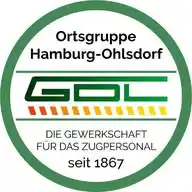Semantic SEO
2 subscribers
Similar Channels
Swipe to see more
Posts
🚀 CRACKED THE CODE: 604 Calls in 13 Days, Purely from Google Business Profile! 🚀 As a Local SEO Expert, I've seen firsthand the raw power of an optimized Google Business Profile (GMB). If you’re still sleeping on yours, it’s time to wake up. This isn't just about showing up in search; it's about making your phone ring non-stop. We recently generated an incredible 604 calls in less than 2 weeks — all organic, no paid ads. This isn't a fluke; it's a direct result of a meticulously implemented system designed to dominate local search and convert lookers into callers. Here’s exactly how we made it happen — broken down into basic, smart, and advanced strategies anyone can follow: 🔹 🔰 BASIC SETUP – The Foundation Most Ignore These steps seem simple, but most local businesses still don’t do them right. Missing even one can limit your reach: ✅ Verified Google Business Profile: Your essential starting point. Ensure your real business address and consistent NAP (Name, Address, Phone) are set up. ✅ Complete Every Field: Fill out your website, phone number, accurate hours, and every relevant category. Think like your customer searching for you! ✅ Add All Services: List every service you offer with proper, keyword-rich names that your ideal clients would search for. ✅ High-Quality Real Photos: Upload compelling, authentic photos – not stock images! Showcase your work, your team, your location. ✅ Consistent Updates: Post updates, promos, or work photos at least twice a week. Keep your profile fresh and active. 🔹 🧠 SMART OPTIMIZATION – For Daily Visibility Now we go beyond setup and work on visibility triggers that help you stand out in competitive local searches: 📍 Location-Based Keywords: Use these strategically in your service descriptions and GMB posts (e.g., "AC Repair in Downtown Dubai," "Plumbing Services in Emirates Hills"). 📝 Reply to Every Review: Engage with all reviews, positive or negative, always using service and location-based keywords naturally in your responses. 🖼️ Share Real Job Photos with Context: Don't just upload; tell a story. "Before & After Villa Painting – Emirates Hills" adds immense value and relevance. 📌 Manually List Service Areas: Don't rely solely on Google's auto-detection. Manually list all the neighborhoods/areas you serve to expand your organic reach. 🔹 🚀 ADVANCED STRATEGY – What Grows Calls Daily These are the tactics that compound results, put you ahead of 90% of your competitors, and can make your phone ring consistently: 🔗 Build Local Citations: Secure business listings on relevant, high-authority platforms like Yelp, Bing Places, Apple Maps, and niche local directories. 📷 Geotag Every Photo: Embed location data into every photo before uploading it to GMB. This tells Google exactly where your work is happening. 📊 Monitor Call History & Insights: Use GMB Insights to find your peak-performing days and hours for calls, then optimize your GMB posts and operations around them. 📌 Mention Nearby Landmarks/Communities: In your posts and updates, subtly refer to local landmarks, communities, or city zones to enhance local relevance. 🧩 Keep Your Service Content Evolving: Regularly update and expand your service descriptions, FAQs, and GMB posts with fresh, relevant content. Google loves freshness! This isn’t a fluke. It’s a system. If your phone isn’t ringing, or your Google Business Profile isn't consistently generating high-intent leads, chances are you're either missing these crucial steps or doing them wrong. 🎁 Want me to look at your GMB and show you what’s missing? 👉 Share this post now, and I’ll give a FREE 30-minute strategy call to the first 10 people who share it. Yes — a real, personalized breakdown of how you can start getting calls every single day — just like we did. 📲 Don’t wait. Hit share, then message me directly! #604Calls #gmbstrategy #googlebusinessprofile #localseo #NoAdsNeeded #gmbleads #FreeStrategyCall #LocalBusinessGrowth #LeadGeneration #SEOExpert
Why Are SEO Experts HIDING This Secret in Schema Markup? (THE TRUTH) Schema markup is a game-changer for SEO, but most experts don’t talk about one critical mistake that could be holding your rankings back. Many SEOs implement schema piece by piece, without properly connecting or nesting them. While Google can read all schema types on your page, it struggles to understand the main entity or relationship between all of the schemas when multiple schema types exist independently. This is the Problem with Disconnected Schema Let's say you're marking up a course page, but you also want to include schema for reviews, videos, and FAQs. You have two options: 1️⃣ Separate Schema – Adding each schema type individually. 2️⃣ Nested Schema – Structuring your markup so that everything relates back to one main entity (course schema being the main entity). The first method is easier, but it weakens your SEO. Why? Because Google won’t know if your page is mainly about a course, a review, FAQ or a video. Also, they don't know the relationship between all the schema markups and entities on the page. This is a big missed opportunity SEOs don't leverage to build a robust schema markup that explicitly show the relationship between the entities on the page. As a result, Google might not fully utilize your schema, reducing your chances of appearing in rich results in relevant places (Google said this in the developer documentation blog) using "Recipe, VideoObject, and Reviews" schema types as example. Google: "Try to FOCUS on describing the CORE meaning of the page. For instance, if you have product selling a particular product, and you list all the related products in the markup without differentiating the main product on the page, that will make it all the harder for us to use that information" Google says that if you have multiple schema markups on a page without "NESTING" them or using the same "IDs" to connect them, you're making it harder for them to understand and utilize your markup effectively. The Solution is to Build a Nested Schema Using course schema as an example in this case When you nest your schema, you make it crystal clear: ✅ The course is the main entity. ✅ The video is about the course. ✅ The reviews are about the course. This structured approach helps Google show your content in the most relevant and visible places—giving you a ranking edge. After spending hours learning how Google makes use of schema markups, I have started building templates that adhere to Google documentation on schema markup best practices. Have you heard about this concept before? Nesting schema markup types is more beneficial to Google than having individual schema markup types on a page.
Why Are SEO Experts HIDING This Secret in Schema Markup? (THE TRUTH) Schema markup is a game-changer for SEO, but most experts don’t talk about one critical mistake that could be holding your rankings back. Many SEOs implement schema piece by piece, without properly connecting or nesting them. While Google can read all schema types on your page, it struggles to understand the main entity or relationship between all of the schemas when multiple schema types exist independently. This is the Problem with Disconnected Schema Let's say you're marking up a course page, but you also want to include schema for reviews, videos, and FAQs. You have two options: 1️⃣ Separate Schema – Adding each schema type individually. 2️⃣ Nested Schema – Structuring your markup so that everything relates back to one main entity (course schema being the main entity). The first method is easier, but it weakens your SEO. Why? Because Google won’t know if your page is mainly about a course, a review, FAQ or a video. Also, they don't know the relationship between all the schema markups and entities on the page. This is a big missed opportunity SEOs don't leverage to build a robust schema markup that explicitly show the relationship between the entities on the page. As a result, Google might not fully utilize your schema, reducing your chances of appearing in rich results in relevant places (Google said this in the developer documentation blog) using "Recipe, VideoObject, and Reviews" schema types as example. Google: "Try to FOCUS on describing the CORE meaning of the page. For instance, if you have product selling a particular product, and you list all the related products in the markup without differentiating the main product on the page, that will make it all the harder for us to use that information" Google says that if you have multiple schema markups on a page without "NESTING" them or using the same "IDs" to connect them, you're making it harder for them to understand and utilize your markup effectively. The Solution is to Build a Nested Schema Using course schema as an example in this case When you nest your schema, you make it crystal clear: ✅ The course is the main entity. ✅ The video is about the course. ✅ The reviews are about the course. This structured approach helps Google show your content in the most relevant and visible places—giving you a ranking edge. After spending hours learning how Google makes use of schema markups, I have started building templates that adhere to Google documentation on schema markup best practices. Have you heard about this concept before? Nesting schema is more useful than creating them individually?
How to Rank for "Near Me" Searches in Google Maps 📍 One of the biggest mistakes I see when people try to rank in the Map Pack for "near me" searches is treating it like a keyword—when in reality, it’s more of a proximity factor. 🚫 Simply adding “near me” to your keywords doesn’t work like it used to. ✅ Instead, focus on the right proximity signals and relevance factors to improve your chances of ranking. Key Factors to Rank for "Near Me" Searches 🚀 ✅ 1️⃣ Title Tags with Location Having the city, state, or both in your title tag is one of the strongest ranking signals. ✅ 2️⃣ Relevance to the Search Query Ensure your website & Google Business Profile (GBP) information is highly relevant to the search intent. ✅ 3️⃣ Build Prominence Across the Web Carry out a “near me” search for your niche & location. Make a list of directories & third-party sites ranking for that term. Get listed on those sites to increase your local prominence. Reverse engineer your competition to find additional opportunities. ✅ 4️⃣ Get Local, High-Authority Backlinks Secure local links from: ✔️ Charities & sports clubs ✔️ Chamber of Commerce ✔️ Local influencers & journalists Make your blog hyper-local and interview community figures for more authority. ✅ 5️⃣ Create Local & Neighborhood Pages Add neighborhood-specific sections with: Driving directions Places of local interest (with natural outbound links) Make sure it looks natural & informative—not spammy. ✅ 6️⃣ Optimize for Mobile 📱 Most "near me" searches happen on mobile. Ensure your site is mobile-friendly and includes clear click-to-call CTAs. 🔥 Follow these steps and you’ll have a much better shot at ranking for "near me" searches! Are you actively optimizing for proximity-based searches? Let’s discuss! 👇
Semantic SEO For Noobs & Everyone Else You owe me $1,000 if you read this! (Cashapp: $Googleseomastermind) Don’t want to buy a $1,000 course? Yeah, I don’t blame you... I wouldn’t either. Especially since Semantic SEO isn’t that hard. Let’s get into it. What the Hell is "Semantic"? The word "Semantic" means: "Of, relating to, or arising from the different meanings of words." Okay, but what does that mean for SEO? Simple: Words have semantic relationships—meaning certain words naturally go together, especially in the English language. Example: Plumbing SEO If I have a plumbing website, I should expect to see semantic (related) words like: Water Pipe Burst Leak Why? Because they all naturally relate to plumbing. Now, as it pertains to search queries, semantically related phrases might look like: "Best plumber near me" "Who to call for a pipe burst in Tucson" "Faucet leaking plumber" And about a billion other variations of ways people search. The Power of Semantic Relationships When you properly structure a page with semantically related terms, you help Google understand the topic better. The goal is to build noun-based relationships that reinforce what your page is actually about. Sounds cool, right? Take It a Step Further: Schema Markup Want to full send your Semantic SEO? Add it to your Schema. When using sameAs, ensure you’re linking noun-based relationships (not just any random site). Your schema description should naturally include words like Plumber, Pipe, Leak, Repair, etc For hasOfferCatalog, include services like: Repiping Faucet Repair Emergency Plumbing Want to get wicked with it? Write a Q&A section for each service page. Why? Because Google MUM (Multitask Unified Model) prioritizes long-tail question-based searches for Position #0 (aka PAA / People Also Ask). Example: "What should I do if my pipes burst?" "How do I choose a good plumber in [city]?" Trigger that PAA section and suck up all the Semantic Juice™. Want to get REAL stupid with it? Co-Occurrence Optimization AKA TF-IDF, but we don’t call it that because it sounds lame. Simple version: Look at the top 1-3 ranked competitors. Identify the nouns (not entities) that appear next to important keywords. Did you forget to mention galvanized pipes on your page? Maybe technician? Fix it. Quadruple Down on Semantic SEO with Blogs Write content around highly searched, semantically rich topics like: "What is the average cost of [service] in [city]?" "Top 10 Best Plumbers in [city]" (List yourself first, dummy.) Link these blogs back to service pages using semantic-based anchor text for maximum relevancy. Want to Absolutely Obliterate Your Competitors? Use Semantic Terms in Image Names & Alt Tags. Hyperlink images to your service pages. Yes, Google still counts <img src="picture-name-stuff">. Want to Hit GOD MODE? Use a Salience Analyzer to confirm that your nouns (not entities) are recognized by Google. Pro Tip: Run your competitor's pages too. Want to Leave the Universe and Go 44 Dimensions Deep? Use this schema trick: "serviceType": { "@type": "DefinedTerm", "name": "Plumbing Services", "alternateName": [ "Pipe Repairs", "Emergency Plumbing", "Leak Fixing", "Sewer Drain Cleaning" ] } Want to Transcend SEO Reality Itself? Use Google Dataset Search to find official industry definitions and link them in sameAs and catalog IDs inside your Schema: https://datasetsearch.research.google.com/ PS: These pictures have nothing to do with this post, but I bet they got your attention. 😉
The Secret Formula to Dominate SEO in 2025 SEO in 2025 isn’t just about keywords, backlinks, or even E-E-A-T anymore. The real question is: Are you keeping up with Google’s silent ranking shift? Recent updates have made one thing clear—Google is prioritizing content that resonates, not just ranks. . Yet, almost 90% of businesses are STILL stuck in outdated SEO strategies. To thrive in this new era, you need to master what I call C-R-I-S-P. . This powerful framework outlines the 5 critical components shaping the SEO landscape: ✅ Context → Google cares about WHY, WHEN, and HOW you say it. ✅ Realness → Users crave raw, relatable, human-driven content. ✅ Intent → Align your content with searcher psychology and problem-solving. ✅ Signals → Prioritize dwell time, engagement depth, and real-world impact. ✅ People → Focus on who interacts with your content, not just who wrote it. . What Happens If You Ignore These? ❌ Lack context? Your content becomes misaligned with search intent. ❌ Lack realness? Your audience feels disconnected. ❌ Lack intent? Your content is irrelevant to the user’s needs. ❌ Lack signals? You fade into obscurity in search rankings. ❌ Lack people? Your content lives in isolation, ignored and unseen. . How to Win with C-R-I-S-P: 🚀 Context: Address the real intent behind the search—not just keywords. 🚀 Realness: Use authentic stories, personal insights, and unfiltered case studies. 🚀 Intent: Solve problems, spark curiosity, and trigger action. 🚀 Signals: Boost dwell time and engagement with emotionally compelling content. 🚀 People: Engage industry leaders, niche communities, and brand advocates. . Why This Matters Now? With Google’s Search Generative Experience (SGE) and evolving user-first ranking factors, it’s no longer just about content—it’s about experience, intent, and engagement. . The best marketers don’t just chase rankings. They build connections that Google rewards. . What’s the biggest SEO challenge you’re facing right now? Drop your thoughts in the comments! 👇
𝐒𝐜𝐡𝐞𝐦𝐚 𝐌𝐚𝐫𝐤𝐮𝐩 𝐓𝐡𝐚𝐭 𝐃𝐫𝐢𝐯𝐞𝐬 𝐂𝐥𝐢𝐜𝐤𝐬 (𝐚𝐧𝐝 𝐂𝐨𝐧𝐯𝐞𝐫𝐬𝐢𝐨𝐧𝐬) Google’s search results are a gladiator pit, and schema markup is your best shot at surviving (or, you know, thriving). It won’t guarantee rich snippets, but it’ll make Google think you deserve them. Here’s what actually moves the needle: 𝐑𝐞𝐯𝐢𝐞𝐰 𝐒𝐜𝐡𝐞𝐦𝐚 Stars under your listing = instant credibility. Works for products and businesses—just not your homepage. 𝐑𝐞𝐜𝐢𝐩𝐞 𝐒𝐜𝐡𝐞𝐦𝐚 Because people love knowing how long they’ll be hungry. Shows cooking time, ingredients, and nutrition. 𝐏𝐫𝐨𝐝𝐮𝐜𝐭 𝐒𝐜𝐡𝐞𝐦𝐚 Turns your search result into a mini storefront—price, availability, and ratings at a glance. 𝐀𝐫𝐭𝐢𝐜𝐥𝐞 𝐒𝐜𝐡𝐞𝐦𝐚 Bigger images, extra metadata—because nobody clicks boring links. 𝐄𝐯𝐞𝐧𝐭 𝐒𝐜𝐡𝐞𝐦𝐚 Date, time, location, ticket price—all the info, none of the hassle. 𝐅𝐀𝐐 𝐒𝐜𝐡𝐞𝐦𝐚 Lets you answer common questions before people even visit your site. (Google favors high-authority sites here.) 𝐇𝐨𝐰-𝐓𝐨 𝐒𝐜𝐡𝐞𝐦𝐚 Guides in search results. Great for fixing sinks, baking cakes, or surviving in the wilderness (probably). 𝐋𝐨𝐜𝐚𝐥 𝐁𝐮𝐬𝐢𝐧𝐞𝐬𝐬 𝐒𝐜𝐡𝐞𝐦𝐚 Your business, front and center—address, hours, contact details. Like a sign, but on Google. 𝐁𝐫𝐞𝐚𝐝𝐜𝐫𝐮𝐦𝐛 𝐒𝐜𝐡𝐞𝐦𝐚 Helps people (and search engines) navigate your site without getting lost. 𝐂𝐨𝐮𝐫𝐬𝐞 𝐒𝐜𝐡𝐞𝐦𝐚 Displays course details so people can pretend they’re finally going to learn something new. 𝐉𝐨𝐛 𝐏𝐨𝐬𝐭𝐢𝐧𝐠 𝐒𝐜𝐡𝐞𝐦𝐚 Your job listing, straight to Google search. Salary, location, deadlines—no middleman. 𝐒𝐨𝐟𝐭𝐰𝐚𝐫𝐞 𝐀𝐩𝐩 𝐒𝐜𝐡𝐞𝐦𝐚 Showcases your app with descriptions, ratings, and download links. Because "just Google it" should work in your favor. 𝐕𝐢𝐝𝐞𝐨 𝐒𝐜𝐡𝐞𝐦𝐚 Gives your videos thumbnails and metadata so they don’t get lost in the content abyss. 𝐈𝐟 𝐘𝐨𝐮’𝐫𝐞 𝐆𝐨𝐧𝐧𝐚 𝐃𝐨 𝐈𝐭, 𝐃𝐨 𝐈𝐭 𝐑𝐢𝐠𝐡𝐭 While you can get rich snippets with zero schema markup, it’s very unlikely you’ll trigger one in less than 24 hours—unlike schema, which practically fast-tracks your content. Structure your data, validate it, and watch Google actually pay attention.













